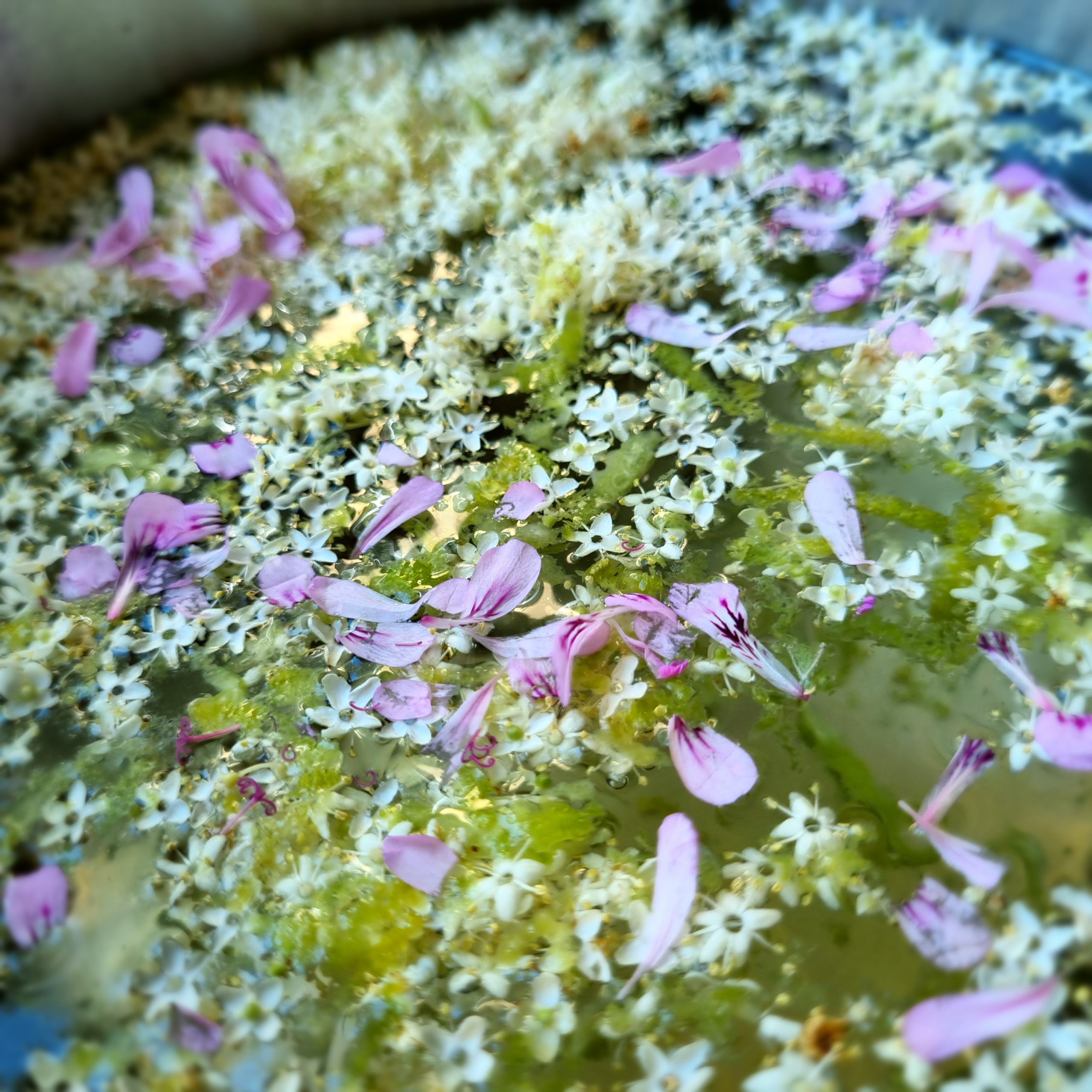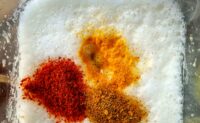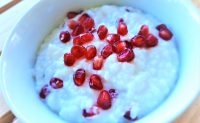Elderflower cordial
By Eyal Shpringer

As spring rushes into summer, many of us can’t keep up. Images of growth, flourishing, freedom, and light are not always part of everyone’s spring. The transition from spring to summer, from wood to the fire phase, especially in dry regions rich in sun, wind, and dust, entails experiences of friction, dryness, heat, and wear.
Since the plant world is also going through these difficulties, wild plants can offer healing qualities of softening, harmony, and regulation of dramatic change during the transitional period. One such plant is the elder tree, with its delicate, white lace-like blossoms. These flowers allow us to experience a more harmonious transition to the summer.
European herbal and cooking traditions offer various delicious recipes using the different parts of the elder tree. One is the cordial, a kind of nectar – a light and delightful healing beverage.
Ingredients:
A heaping handful of elderberries
lemon zest (1 tsp)
1 liter of water
lemon juice squeezed from half a lemon
Preparation of Elderflower cordial
Place elder flowers in an empty container and shake them to ensure they are insect-free. Do not wash the flowers so as not to damage the taste.
Remove small branches from the flowers as much as possible. I usually separate the flowers from the elder tree branches by “combing” the flowers with a fork.
Cover the flowers with water, and add lemon zest. Bring a boil and simmer with a lid on for about 30 minutes. Strain the liquid. Add lemon juice to taste.
Cool and place in a sanitized bottle with a lid. The drink can last in the refrigerator for several weeks.
Adding sugar (a less medicinal effect), citrus peels, or spices to this recipe is also optional to enhance flavor or therapeutic effect.
Eyal Shpringer, A Chinese medicine practitioner and a clinical herbalist specializing in Chinese nutrition and traditional nutritional approaches. Eyal holds a master’s degree in research of East Asian medicines. Since 2007 he has been teaching a postgraduate training program in Chinese and oriental nutrition according to the TEF method and other courses and workshops for practitioners. Eyal co-authored the bestselling book Cooking for Life: A Traditional Nutrition Cookbook for Cancer Patients (Hebrew).
Did you find the recipe interesting? Do you want to continue studying with me?
You are invited to join me on my Instagram page and the Traditional Nutrition and Medicine Facebook group.

